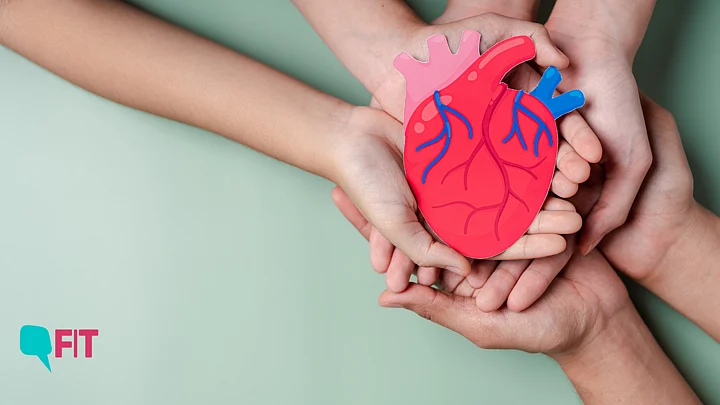Increased incidence of heart ailments, sudden cardiac deaths (SCDs), and heart attacks in India have shot up exponentially.
The World Health Organisation (WHO) estimates that India is contributing at least one-fifth of the 17.9 million cardiovascular disease-related deaths worldwide, particularly among younger people.
Off late, the rising number of cases of SCDs and heart attacks in singers, comedians, and actors has drawn our focus to the issue. Recent research shows hard-hitting numbers for Indians’ predisposition towards cardiovascular disorders.
According to the most recent Global Burden of Disease study, published by the Institute for Health Metrics at the University of Washington in Seattle, India has a death rate of 272 per 1 lakh people due to cardiovascular diseases, higher than the global average of 235.
According to government statistics, cardiovascular diseases (CVDs) account for 24.8 percent of all fatalities in Indians aged 25-69 each year, which is more than any other illness or condition.
But why is there a rise in CVDs in Indians?
Reasons for Heart Problems in Indians
Unhealthy lifestyle choices are the top contenders for contributing to CVDs in Indians. These include
Imbalanced diet
Stress
Lack of exercise
Smoking
Alcohol use
Moreover, our genetic predisposition and low birth weight can also contribute as major factors for heart problems in the population.
Eating habits and dietary requirements have an important role to play as well since 86 percent of our diet is richly refined carbohydrates. Due to this, a high amount of fat gets stored in the abdomen which is worrisome for cardiac health.
With India being the diabetes capital of the world, it is possible that diabetic conditions too could be a leading enabler of cardiovascular diseases in young people.
When it comes to dietary habits, our food also has a high salt intake which can pose a major concern for cardiac health. It's also the primary cause of high blood pressure, which leads to numerous heart attacks and cardiac arrests each year.
Moreover, with work-from-home becoming a norm, young professionals have reduced any kind of physical exertion, which leads to them becoming unfit.
Managing Your Heart Health
Although there is no certain age at which a cardiac arrest can occur, lifestyle decisions, food, exercise programmes, and stress management techniques can all affect the likelihood of having one.
For those already suffering from cardiac issues, an unhealthy lifestyle can be quite worrisome. Patients who have survived cardiac arrest but are at risk of experiencing them again must get an implantable cardioverter-defibrillator (ICD) device, inserted (a non-invasive method).
When potentially dangerous cardiac arrhythmias occur, this device can monitor, enhance heartbeat, and administer electrical shocks to return the heart rate to normal. It is a tiny, battery-powered gadget that is implanted into the chest and is used to monitor patients' heartbeats and spot anomalies.
At this juncture, I would like to share my experience regarding two patients, both relatively young females requiring cardiac implantable electronic devices (CIEDs).
One of them was a high school headmistress who came to me with progressively worsening shortness of breath and was diagnosed with dilated cardiomyopathy (DCM) with severe LV systolic dysfunction.
She safely underwent Cardiac resynchronization therapy (CRT) device implantation following which her symptoms resolved almost completely. Not to mention the significant increment in her cardiac functions.
The other patient had a case of dilated cardiomyopathy wherein she presented with ventricular tachycardia (VT). She had to be intubated and required critical care for a few days before she got back to normal.
Although the incidence of heart diseases and sudden cardiac deaths are increasing, we have several ways to tackle them including but not limited to lifestyle modifications, optimal medico therapy, percutaneous interventions, CRM devices, etc.
It is advisable to adopt healthy living habits consistently to ensure optimal cardiovascular health.
Eating a nutritious, well-balanced diet, exercising frequently, abstaining from smoking, regulating, and restricting alcohol intake, maintaining proper sleep cycles, and managing stress are all part of a healthy regimen.
One should also be aware of any family history and take appropriate precautions. Regular check-ups are essential to diagnose any problems and treat them with the medications and regimens the doctor may advise.
(Dr Ajay S is a Consultant and Interventional Cardiologist at the Saveetha Medical College & Hospital in Chennai. This is an opinion piece and the views expressed above are the author’s own. The Quint neither endorses nor is responsible for the same.)
(At The Quint, we question everything. Play an active role in shaping our journalism by becoming a member today.)
